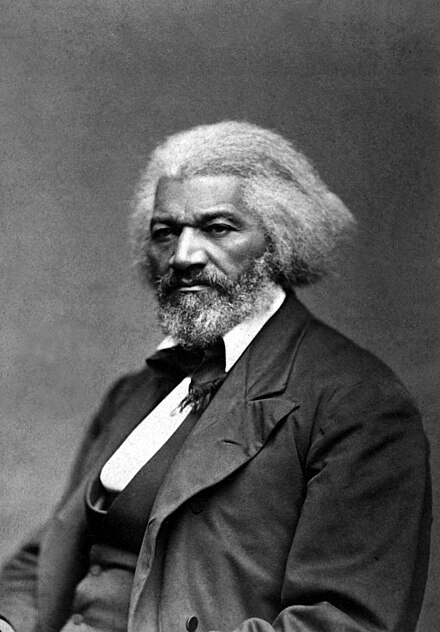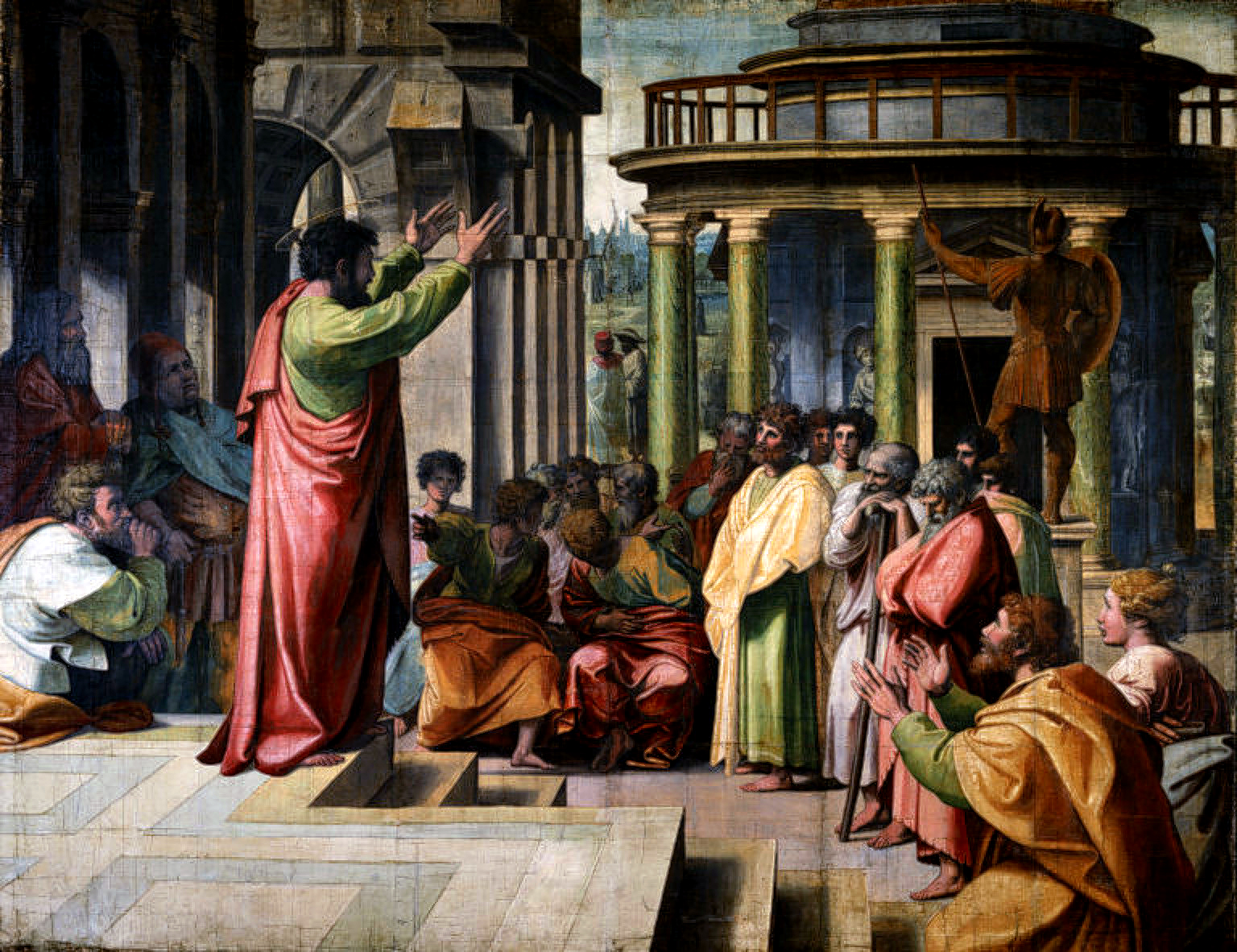 The timing of the release of Family Discipleship: Leading Your Home Through Time, Moments, & Milestones was fortuitous. I am currently preaching a series on Cultivating a Culture of Discipleship. The final sermon, which is Sunday, is on Deuteronomy 6. The special pricing enabled us to buy copies to give away to our families with children at home.
The timing of the release of Family Discipleship: Leading Your Home Through Time, Moments, & Milestones was fortuitous. I am currently preaching a series on Cultivating a Culture of Discipleship. The final sermon, which is Sunday, is on Deuteronomy 6. The special pricing enabled us to buy copies to give away to our families with children at home.
Did we make a mistake in doing this? I mean that I had not yet read the book. It is possible we chose a very flawed book to give to our parents.
It has some minor flaws but it is a very good book over all.
It was written by Matt Chandler and Adam Griffin. Matt’s kids are largely teens, and Adam’s are younger. At times they explain how they have applied the framework they espouse.
“This book is a plea and a tool for you to embrace God’s call on you as a dad or mom to intentionally get in your kid’s life around their greatest need, their spiritual development.”
This is an honest book. These men do not claim to perfectly disciple their children. Nor do they expect you to do so either. They know there will be rich times and incredibly frustrating times as you seek to disciple your children.
 This book provides a framework for understanding how that discipleship takes place within the course of life. The main chapters have questions to process the information and charts to help you apply the information to your family and circumstances. Many of them provide ideas for application. Each chapter has a page of quotes at the beginning. They include a passage of Scripture, familiar names like Charles Spurgeon and Howard Hendricks as well as some unexpected names like Theodore Roosevelt and (a great quote by) Frederick Douglass. The Ann Voskamp reference was … interesting. Sorry, I’m not a fan of Ann’s books.
This book provides a framework for understanding how that discipleship takes place within the course of life. The main chapters have questions to process the information and charts to help you apply the information to your family and circumstances. Many of them provide ideas for application. Each chapter has a page of quotes at the beginning. They include a passage of Scripture, familiar names like Charles Spurgeon and Howard Hendricks as well as some unexpected names like Theodore Roosevelt and (a great quote by) Frederick Douglass. The Ann Voskamp reference was … interesting. Sorry, I’m not a fan of Ann’s books.
The fact that the authors are Baptists does not seem to matter a great deal. The vast majority of what they say could be said by a Presbyterian, Methodist or Lutheran. The exceptions are the few times they mention baptism, and the mention of purity rings and purity ceremonies in the chapter on milestones. Purity rings & ceremonies are generally found in the purity culture of baptistic churches. I have no first hand knowledge of this but know that many felt damaged by purity culture. I don’t want to get into that, but this could turn some people off as a result.
Introduction
The framework is just that, and not a one-size fits all kind of program. Each family has unique circumstances and personalities. They want to respect this AND help you fulfill your responsibilities.
The goal is discipleship a process which we can control. We can’t control the outcome. We can’t save our children, and shouldn’t feel the weight of that burden. God doesn’t hold you responsible for their salvation, and you shouldn’t blame or demand that of yourself either.
Discipling our children will be costly at times. You may have to die to yourself and your agenda for your time. This process is important, but it is not the most important thing (IOW don’t make an idol out of it). It should not be a part of the common idolatry of children that we see. Their goal isn’t to shame you, but encourage you. They also recognize that some parents disqualify themselves from this place through abuse of their children.
The Family that Disciples
All parents who are Christians have the position of disciple maker as part of their responsibility. The family is the primary place for children being made disciples. You can only disciple them as much as you have been discipled yourself. You may need to be discipled into being able to fulfill your responsibility. Our children imitate us, and hopefully not only in negative ways.
Be imitators of me, as I am of Christ. 1 Corinthians 1
They also identify what family discipleship isn’t. For instance, it isn’t spiritual exploration without boundaries. It involves truth and love which means bringing them back to Scripture regularly as our authority. It isn’t using that Word to get your way. We don’t want to manipulate and spiritually abuse them. Know that your kids likely won’t be popular because they will go against the cultural tide. Nor is it an way be be admired because you’ll often make unpopular choices.
One minor issue was with a sentence in this section. “Your identity is rooted in being a child of God not a parent of your child.” Actually, my identity is both. Surely the primary one is in Christ but we have many identities that reflect the various callings Christ has put on our lives.
One way they try to take pressure off is to remind it that it generally takes place in the ordinary course of life. Kids don’t need a lesson from you that rivals the best of R.C. Sproul. They do need you to take initiative in their spiritual formation and development. Don’t wait for them to ask you to teach them the Bible. You do want to make such family time and discussions the norm in your family.
The Foundation
The authors bring us to the two greatest commandments as stated by Jesus in Matthew 22. Our priority is to help our children “know, follow, and trust him.” Ideally parents and churches are working together with this goal. Parents have the primary responsibility but “there are some things our kids feel more comfortable talking through with someone who is not their mom or dad.”
It isn’t just about doctrine, but also recounting God’s faithfulness in history (redemption) and in your life (redemption applied or testimony). Both of these have Scriptural basis.
They recognize that sin makes family life difficult more often than we want to admit. This means, in part, modeling repentance to your children. This means teaching them to resolve conflict in a godly fashion.
Since the church is the household of God, we see the family as a microcosm of church and one of the two places we are intended to learn the faith. We learn how to love God and one another.
Modeling
The chapter on modeling seems to be about getting your own house in order as a parent. The material at the end helps you see how you engage in your own discipleship, and encourages you to make necessary changes for your personal benefit, the benefit of your kids and the glory of God (ultimately).
They encourage us to be both reliable and relatable. These refer to integrity (often born in repentance) and relational connection. They need to see you worship God, trust God, obey God and thank God. They need your consistency of life. They need to see you loving your neighbor.
One of the joys I’ve had as a dad is seeing my kids helping our neighbors. I love that He is developing a heart for others in them, even if they are sometimes reluctant or inconsistent.
We aren’t just teaching them doctrine but preparing them to leave the house as fully functioning adults and, hopefully, Christians.
I reminded my daughter the other day that most mornings, if she gets up early enough, she’ll see her mother and me in the Scriptures. We are committed to being in the Word. We are committed to prayer and pray with the kids at meals regularly (beyond ‘thanks’) and bedtimes (though as they are older and go to bed at different times this is tougher). They also see the rhythm of church life modeled for them.
Time
Now they begin to unfold their framework. Discipleship takes place in time. It requires time as a regular investment. This may require eliminating something to free up time but mostly you can find some common free time in the weekly schedule. They note that most of us have a “disordered relationship with (our) itinerary.”
 They want you to establish reasonable goals rather than thinking you’re going to spend 30-60 minutes each night with your kids expounding the Word and in deep prayer. It might be 15 minutes most nights. We used to read them a chapter from the Jesus Storybook Bible each night. When they started BSF with their mother, we’d help them with the take home work. So we were regularly engaging them with Scripture (they now do most of the BSF work on their own). At times we’ve worked on Catechism questions. I wish I could say we’ve done all these consistently and well, but sometimes my selfish agenda meant I begrudgingly gave them time and wasn’t as patient as I should have been.
They want you to establish reasonable goals rather than thinking you’re going to spend 30-60 minutes each night with your kids expounding the Word and in deep prayer. It might be 15 minutes most nights. We used to read them a chapter from the Jesus Storybook Bible each night. When they started BSF with their mother, we’d help them with the take home work. So we were regularly engaging them with Scripture (they now do most of the BSF work on their own). At times we’ve worked on Catechism questions. I wish I could say we’ve done all these consistently and well, but sometimes my selfish agenda meant I begrudgingly gave them time and wasn’t as patient as I should have been.
But this is about establishing regular routines of discipleship with your kids that are age appropriate. They won’t all be home runs or appreciated. But they are to be intentional. Discipleship doesn’t just happen by accident.
There is a helpful section here on the difference between telling and teaching. Too often we settle for telling because it is easier and quicker. But we are called to teach them so they understand and can apply it.
Moments

It’s been 5 years.
In addition to the rhythms of life there are the teachable moments of life. These are often the unplanned moments when you can speak into their lives as they struggle with relationships, health or failure. There are also the positive moments when you stop to thank God for mercy. These are the times they learn about repentance, forgiveness and more.
Many moments provide opportunity to speak gospel truth into their lives, much like it says in Deuteronomy 6. Yes, they may find this annoying at times, but points them back to Jesus.
These are the moments we teach them who God is. These are the moments when we teach them godly character as well. Here we teach them to logic of grace (gospel facts ==> gospel-shaped living).
Milestones

Milestones are the highest of highs and the lowest of lows. We acknowledge God is there and still sovereign. In the days of the Patriarchs and Wilderness wanderings they built altars to mark significant places and times. They aid in our memory. And our children’s. Pass on the milestones of your life so they hear of the faithfulness of God to you.
For us there have been surgeries as well as adoption ceremonies. On vacation we often have Farm Fest which has morphed into Family Fest which includes time of worship and instruction. We could do a better job of making a big deal about recitals and other events but I think that is a function of our personality.
Overall, as I noted, this is a very helpful book for parents to think through how they will disciple their kids. It is a big picture book rather than a how-to book on family worship. This is an encouragement to engage in the process of discipleship regarding your kids. The focus is on time, moments and milestones as the opportunities God provides to express your love for God and your kids so they learn to love and obey him.
If you haven’t already, embark on that great endeavor.
“It is easier to build strong children than to repair broken men.” Frederick Douglass
 Sometimes you read a book that has been sitting on your shelf for years and think, “I wish I’d read this years ago.”
Sometimes you read a book that has been sitting on your shelf for years and think, “I wish I’d read this years ago.” This involves a brand new way of thinking as Paul repeatedly asserts in his epistles. We are, after all, transformed by the renewing of our minds. That means not simply new beliefs (it includes that) but new ways of viewing and thinking about everything. He differentiates between a program-based model, an individual (often parachurch) model, the small group model and his kingdom model. The kingdom model incorporates the other models but “places them in the context of God’s kingdom. It is informational, formational, and transformational!” There is content, it forms a worldview and transforms lives.
This involves a brand new way of thinking as Paul repeatedly asserts in his epistles. We are, after all, transformed by the renewing of our minds. That means not simply new beliefs (it includes that) but new ways of viewing and thinking about everything. He differentiates between a program-based model, an individual (often parachurch) model, the small group model and his kingdom model. The kingdom model incorporates the other models but “places them in the context of God’s kingdom. It is informational, formational, and transformational!” There is content, it forms a worldview and transforms lives. Dunahoo begins with Modernity. He views it as a threat IF it is allowed to “control our lifestyles consciously, subconsciously, or unconsciously.” It can be an opportunity IF “we understand it and its influence, and know how to use it in proper ways.” In this context he defines premodern, modernity and postmodernism as he did earlier in terms of sources of authority for knowledge and true.
Dunahoo begins with Modernity. He views it as a threat IF it is allowed to “control our lifestyles consciously, subconsciously, or unconsciously.” It can be an opportunity IF “we understand it and its influence, and know how to use it in proper ways.” In this context he defines premodern, modernity and postmodernism as he did earlier in terms of sources of authority for knowledge and true. Both modernism and postmodernism are present in our culture. This is a function of the generational context. Older generations still operate in a modernist mindset (generally) and younger generations are more influenced by postmodernism. Discipleship can’t ignore modernism and postmodernism, and can’t ignore the generational context either.
Both modernism and postmodernism are present in our culture. This is a function of the generational context. Older generations still operate in a modernist mindset (generally) and younger generations are more influenced by postmodernism. Discipleship can’t ignore modernism and postmodernism, and can’t ignore the generational context either. He provides three biblical models or examples of how to do this. The first is Paul in Athens (Acts 17). Paul gains a hearing by building bridges through points of contact. Our message has to have some meaning to those who listen. In many cases this means first listening to the concerns and questions of those to whom we speak. This doesn’t mean that Paul was a relativist. He had a fixed reference point. He didn’t compromise his worldview but built on common concerns to then communicate his worldview. In this Dunahoo distinguishes between actual relevance (what it means for our lives) and functional relevance (whether or not we see that relevance).
He provides three biblical models or examples of how to do this. The first is Paul in Athens (Acts 17). Paul gains a hearing by building bridges through points of contact. Our message has to have some meaning to those who listen. In many cases this means first listening to the concerns and questions of those to whom we speak. This doesn’t mean that Paul was a relativist. He had a fixed reference point. He didn’t compromise his worldview but built on common concerns to then communicate his worldview. In this Dunahoo distinguishes between actual relevance (what it means for our lives) and functional relevance (whether or not we see that relevance). I began reading
I began reading  Pierre develops a biblical understanding of the heart: interaction between thinking, feeling and willing. As he notes in his diagram the functions are interrelated and overlapping. Our heart responses are complex.
Pierre develops a biblical understanding of the heart: interaction between thinking, feeling and willing. As he notes in his diagram the functions are interrelated and overlapping. Our heart responses are complex. The second section entitled The Context of Human Experience: What the Heart Dynamically Responds To. The most obvious answer is God, but also to self, to others and circumstances. This fits well with Relational Wisdom 360 (God, self, others) as well as Frame’s triperspectivalism (God, me & circumstances (people included)).
The second section entitled The Context of Human Experience: What the Heart Dynamically Responds To. The most obvious answer is God, but also to self, to others and circumstances. This fits well with Relational Wisdom 360 (God, self, others) as well as Frame’s triperspectivalism (God, me & circumstances (people included)). The book ends with Counseling from a Theology of Human Experience. He compares counseling to raking, not baking. His counseling process involves reading hearts, reflecting so people can understand their hearts, relate them to Jesus, and renew so they make new responses. This is where I got bogged down. It has less content and more sample questions to get at each of these steps in the raking process. If I were reading with an eye on counseling I probably would have found it more profitable. I did find the first two sections very profitable.
The book ends with Counseling from a Theology of Human Experience. He compares counseling to raking, not baking. His counseling process involves reading hearts, reflecting so people can understand their hearts, relate them to Jesus, and renew so they make new responses. This is where I got bogged down. It has less content and more sample questions to get at each of these steps in the raking process. If I were reading with an eye on counseling I probably would have found it more profitable. I did find the first two sections very profitable.